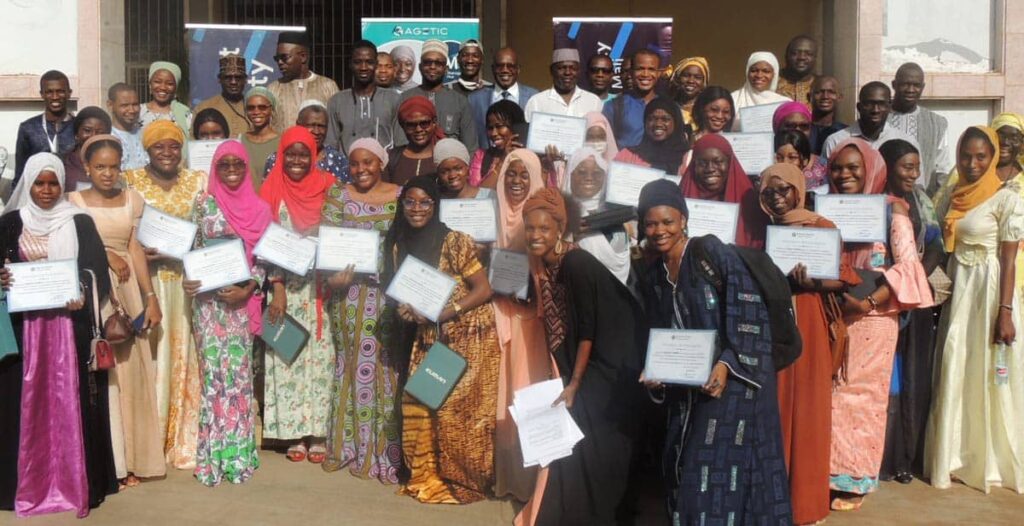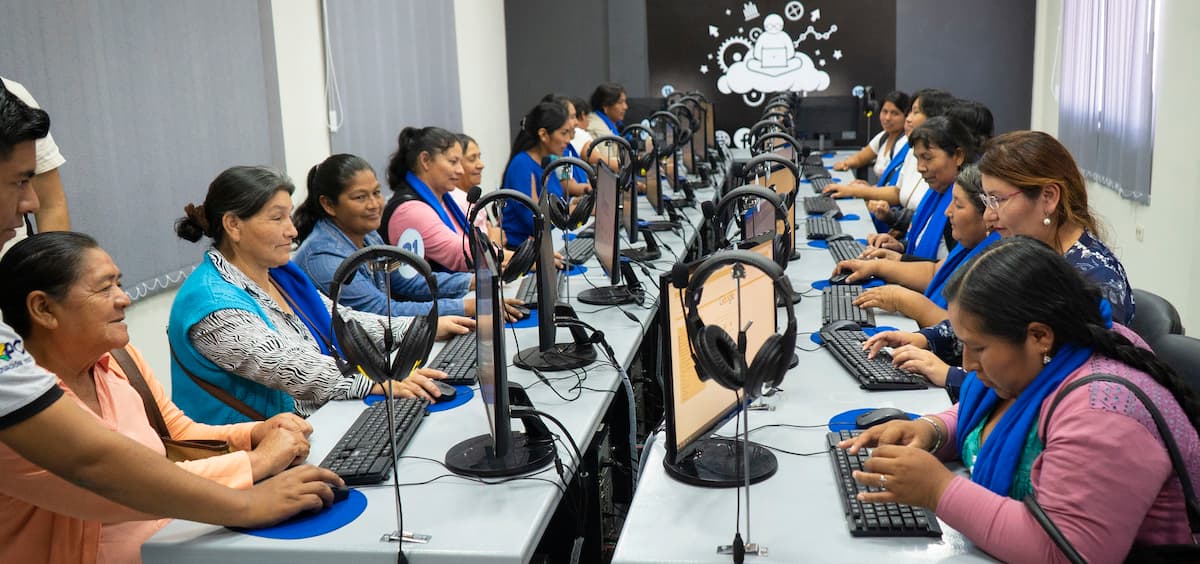We wouldn’t have the Internet we have today without women. We know and love the fathers of the Internet (just as a friend of the Internet Society Vint Cerf, I’m sure, would attest), but just as the Internet today is a team effort, its creation was, too. In a field that often lacks gender balance, it’s vital to highlight women’s fundamental role in the Internet’s past, present, and future.
Internet “Herstory”
In the lead-up to Women’s History Month, I have been reading the book Broad Band by Claire L. Evans, a history of women’s integral roles in building, socializing, protecting, and reimagining the Internet across the globe. “Women turn up at the beginning of every important wave in technology,” she writes. “Before a new field developed its authorities, and long before there was money to be made, women experimented with new technologies and pushed them beyond their design.”
At the Internet Society, we highlight the achievements of these women through our Internet Hall of Fame. Previous honorees have been engineers and academics, entrepreneurs, and librarians. They have created and connected networks across borders, provided access to communities, and actively built a freer, more equitable Internet for all. This includes women like Kanchana Kanchanasut, who championed and connected Asia to the global Internet, and Radia Perlman, who solved mathematical and technical challenges to network and routing protocols that made them scalable and easy to manage.
The history of the Internet couldn’t have been written without women. Women are not just users or late adopters. Many are pioneers. They are at the heart of the Internet we know and love today, whether we know them or not. This does not diminish the heroic work of the men who built, maintained, and continued to grow the Internet. It is to shine a light on some of the Internet’s many unsung heroines.
Today, as you post that International Women’s Day blog post, social media graphic, or staff email, remember that all of those things are only possible because of these trailblazing women.
Women and the Internet Today
Just as they have been since the first packet switching research was published, women remain essential as users, engineers, specialists, and social Internet innovators.
As a central part of our work to grow the Internet, we build community networks and Internet exchange points that bring in new users and improve connectivity—and many of these projects are led by women and created for women.
Most recently, we have been working with partners to connect indigenous women in the South American Chaco region to the Internet. This project has enabled local leaders to manage their own networks, unlock economic opportunities, and continue to protect a resilient and connected community.
In the same way, we work with experts, policymakers, and leading voices to strengthen the Internet as a tool for women—for connection, growth, and opportunity.
At the Network and Distributed System Security (NDSS) Symposium, an annual event for security researchers and practitioners, Signal Foundation President Meredith Whittaker outlined the technical and social challenges that face the Internet today—and how to solve them.
And members of our community like Nighat Dad and Cathrona Samuel are fighting Internet fragmentation in Pakistan and Antigua and Barbuda, protecting everyone’s right to access information and opportunity, no matter where or who they are.
The Women Building Tomorrow’s Internet
There are so many brilliant women—many within our community of members—carrying on the grand tradition of Internet development and stewardship. Many have been through our fellowship and training programs to become the Internet champions of tomorrow.
In 2023, the Internet Society ran a training in Mali on the Fundamentals of Digital Deployment of Computer Networks (DDCN). It enabled qualified young women like Aminata Hélène Dackouo and Oumou Doumbia to spend six weeks gaining practical knowledge and experience, the missing link to receiving their first graduate jobs. These young women are now part of the Internet of the future, ready to build and protect an open, global Internet and create a ripple effect in their local communities and beyond.

The Internet offers unmatched potential, and we are here to realize it. Fellowships for early and mid career professionals, youth ambassador programs, IETF policymaker fellowships, and regular training and e-learning courses build a cohort of alumni—men and women alike—at the forefront of equipping the Internet leaders of the future.
The Internet is created by people, for people, in order to connect and communicate across borders and divides. Evans said it best in the introduction to her book: “Without the human touch, current may run, but the signal stops…We give it meaning, and in that meaning, likes its worth.”
As we celebrate International Women’s Day, we celebrate an Internet that exists because of women, and that will stand the test of time because women continue to evolve it, enabling it to connect and maintain networks of people.
You are part of this Internet, too, and we want you to be part of its future. Learn more about how you can get involved.
Image © Gustavo Castellanos Echazú
